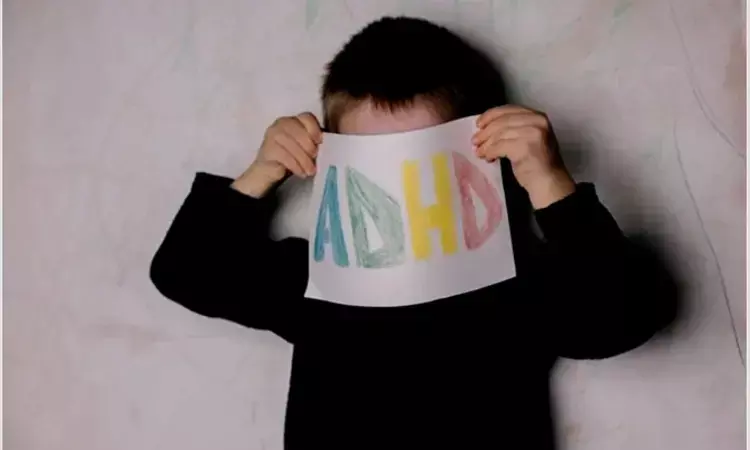- Home
- Medical news & Guidelines
- Anesthesiology
- Cardiology and CTVS
- Critical Care
- Dentistry
- Dermatology
- Diabetes and Endocrinology
- ENT
- Gastroenterology
- Medicine
- Nephrology
- Neurology
- Obstretics-Gynaecology
- Oncology
- Ophthalmology
- Orthopaedics
- Pediatrics-Neonatology
- Psychiatry
- Pulmonology
- Radiology
- Surgery
- Urology
- Laboratory Medicine
- Diet
- Nursing
- Paramedical
- Physiotherapy
- Health news
- Fact Check
- Bone Health Fact Check
- Brain Health Fact Check
- Cancer Related Fact Check
- Child Care Fact Check
- Dental and oral health fact check
- Diabetes and metabolic health fact check
- Diet and Nutrition Fact Check
- Eye and ENT Care Fact Check
- Fitness fact check
- Gut health fact check
- Heart health fact check
- Kidney health fact check
- Medical education fact check
- Men's health fact check
- Respiratory fact check
- Skin and hair care fact check
- Vaccine and Immunization fact check
- Women's health fact check
- AYUSH
- State News
- Andaman and Nicobar Islands
- Andhra Pradesh
- Arunachal Pradesh
- Assam
- Bihar
- Chandigarh
- Chattisgarh
- Dadra and Nagar Haveli
- Daman and Diu
- Delhi
- Goa
- Gujarat
- Haryana
- Himachal Pradesh
- Jammu & Kashmir
- Jharkhand
- Karnataka
- Kerala
- Ladakh
- Lakshadweep
- Madhya Pradesh
- Maharashtra
- Manipur
- Meghalaya
- Mizoram
- Nagaland
- Odisha
- Puducherry
- Punjab
- Rajasthan
- Sikkim
- Tamil Nadu
- Telangana
- Tripura
- Uttar Pradesh
- Uttrakhand
- West Bengal
- Medical Education
- Industry
Early-term births associated with higher rate of ADHD finds study

Among children born at term (37-41 weeks), those born before 39 weeks are more likely to experience symptoms associated with attention-deficit/hyperactivity disorder (ADHD), according to a study by Rutgers Robert Wood Johnson Medical School.
ADHD, which affects more than 10 percent of U.S. school-age children, according to the Centers for Disease Control and Prevention, manifests early in childhood with symptoms of hyperactivity, impulsivity or inattention, and has known links to preterm birth (less than 37 weeks gestation).
The study, published in the Journal of Pediatrics, is one of only a few to investigate the associations between gestational age at term (37–41 weeks) and a diagnosis or symptoms of ADHD. It is the first to include reports from teachers.
"Teachers' reports, in conjunction with maternal reports and physician evaluations, provide valuable input for the diagnosis of ADHD," said Nancy Reichman, author of the study and a professor of pediatrics at Rutgers Robert Wood Johnson Medical School.
"Mother-reported symptoms generally reflect behaviors in the home or in small family or social groups, while teacher-reported symptoms reflect behaviors in a structured educational setting by professionals who work with a large number of children and observe the range of behaviors that students exhibit in classrooms."
Reichman and her team, which included Rutgers Robert Wood Johnson Medical School neonatology fellow Geethanjali Linguasubramanian, sought to estimate the associations between gestational age at term and 9-year-old children's symptoms of ADHD reported by their teachers.
They analyzed data on about 1,400 children in the Fragile Families and Child Wellbeing study, a U.S. birth cohort study that randomly sampled births in 75 hospitals in 20 large U.S. cities from 1998 to 2000 and re-interviewed mothers over nine years.
During the nine-year follow-up, consent was obtained to contact the children's teachers, who were asked to evaluate their students using the Conners' Teacher Rating Scale-Revised Short Form, which includes symptoms of hyperactivity, ADHD, oppositional behavior and cognitive problems or inattention.
Overall, the Rutgers researchers found that children born early-term (37–38 weeks) had significantly higher scores on the teacher rating scales than children who were full-term (39–41 weeks) for hyperactivity, ADHD and cognitive problems or inattention, but that gestational age wasn't significantly associated with oppositional behavior.
Specifically, the researchers found that each week of gestational age at term was associated with 6 percent lower hyperactivity scores and 5 percent lower ADHD and cognitive problems or inattention scores, and that birth at 37 to 38 weeks was associated with 23 percent higher hyperactivity scores and 17 percent higher ADHD scores when compared with birth at 39 to 41 weeks.
"The findings add to growing evidence supporting current recommendations for delaying elective deliveries to at least 39 weeks and suggest that regular screenings for ADHD symptoms are important for children born at 37 to 38 weeks," Reichman said.
Preterm infants are at increased risk for ADHD because of immature brain development, she said. "Significant growth and development in various kinds of brain cells are observed between 34 and 40 weeks of gestation," said Reichman. "Infants born at full-term likely benefit from the additional one to two weeks of brain growth in utero compared with those born early-term."
Reference:
Gestational Age at Term and Teacher-Reported ADHD Symptom Patterns. Geethanjali Lingasubramanian, Hope Corman, Kelly Noonan, Nancy E. Reichman, Published: August 05, 2022 DOI: https://doi.org/10.1016/j.jpeds.2022.07.042
Dr Kamal Kant Kohli-MBBS, DTCD- a chest specialist with more than 30 years of practice and a flair for writing clinical articles, Dr Kamal Kant Kohli joined Medical Dialogues as a Chief Editor of Medical News. Besides writing articles, as an editor, he proofreads and verifies all the medical content published on Medical Dialogues including those coming from journals, studies,medical conferences,guidelines etc. Email: drkohli@medicaldialogues.in. Contact no. 011-43720751


